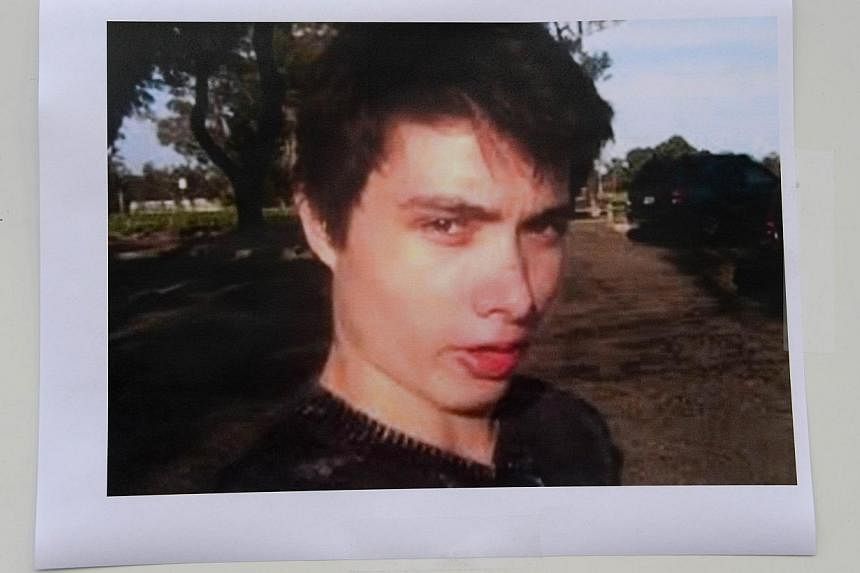SANTA BARBARA, United States (AFP) - A 22-year-old man who murdered six people in a violent rampage in California had previously convinced police he was not a threat to others.
Santa Barbara County Sheriff Bill Brown said Sunday that authorities were alerted on April 30 to concerns about Elliot Rodger, who took his own life after Friday's killing spree in the town of Isla Vista, outside of the University of California at Santa Barbara.
A mental health department official requested a welfare check on Rodger following the tip-off, and sheriff's deputies subsequently visited the troubled man.
But police took no further action after Rodger explained to deputies that "it was a misunderstanding," Mr Brown told CNN.
"He was able to convince them that he was not at that point a danger to himself or anyone else."
Looking back, "we certainly, you know, wish that we could turn the clock back and maybe change some things," Mr Brown said in a separate interview on CBS television's Face The Nation.
However, there were no grounds for placing Rodger on an involuntary hold, an order that allows authorities to commit individuals to a mental health facility for further observation, Mr Brown said.
Rodger stabbed to death three men in his apartment, before going on a shooting spree nearby and killing two young women and another young man.
Another 13 people were wounded in the attack, two of whom remain in serious condition.
Questions about how Rodger was free to carry out his bloody assault have swirled after it emerged he left several written manifestos and videos posted online explaining his motives, some of which were uploaded weeks before Friday's rampage.
Rodger, who had been diagnosed with Asperger syndrome, wrote about his meeting with police in a 140-page manifesto-autobiography titled "My Twisted World."
He said the police asked him if he had suicidal thoughts and he "tactfully told them it was all a misunderstanding, and they finally left."
Rodger, son of Hollywood director Peter Rodger, wrote that he feared the police would discover the cache of weapons and bullets hidden in his room and arrest him.
"If they had demanded to search my room... that would have ended everything. For a few horrible seconds, I thought it was all over," he wrote.
"When they left, the biggest wave of relief swept over me. It was so scary." It was not clear whether police had checked to see if Rodger owned any firearms when they visited him.
Had they done so, they would have discovered that Rodger had legally purchased three firearms.
Mr Brown said the case would renew debate about the easy availability of firearms.
"It's easy to look at these situations from a Monday morning quarterback perspective," he told CNN. "But there certainly is a problem."
However, he stressed that little if anything could have been done to prevent Rodger obtaining the weapons.
Because Rodger was never institutionalized or held by authorities, he was allowed to buy guns.
Mr Richard Martinez, whose son Christopher died in the attack, slammed lawmakers and the gun lobby after the tragedy.
"Why did Chris die? Chris died because of craven, irresponsible politicians and the NRA," Mr Martinez said, raising his voice.
"They talk about gun rights. What about Chris's right to live? When will this insanity stop?"

